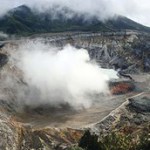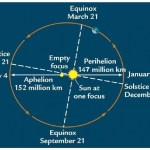Physical Sciences
Due to my activities at the Society of Surgical Oncology meeting in San Antonio, somehow I didn't manage to crank out a bit of that Insolence, Respectful or Not-So-Respectful, that you all crave. So, given that this is Friday, I thought I'd to a "rerun" of a bit of classic woo. This one's a little newer than the reruns I usually do, only two and a half years old. So, if you've been reading less than two years, it's new to you!
In the nearly two years of its existence, I have strived to feature only the finest and most outrageous woo that I can find. It's mostly been medical quackery but…
Say it ain't so, Dr. Pho!
Back when I first started blogging over six years ago, one of the first medical blogs I came across was KevinMD, the weblog of one Dr. Kevin Pho. Back then, of course, Dr. Pho's blog wasn't anywhere near the medblogging juggernaut that it is now, a part of Medpage Today. Indeed, Kevin was one of my early influences, although, as you can see, I never managed to get the whole brevity in writing thing down. Or the whole commercial savvy thing, either. Or the team blogging thing, either. Respectful Insolence was and remains a one man operation (or one Plexiglass box of…
I have a whole pile of science-y book reviews on two of my older blogs, here and here. Both of those blogs have now been largely superseded by or merged into this one. So I'm going to be slowly moving the relevant reviews over here. I'll mostly be doing the posts one or two per weekend and I'll occasionally be merging two or more shorter reviews into one post here.
This one is from August 22, 2008 and reviews the following books:
Wrinkles in Time: Witness to the Birth of the Universe
Pursuit of Genius: Flexner, Einstein, and the Early Faculty at the Institute for Advanced Study
Archimedes…
Graham Readfern explains how a thorough demolition of Ian Plimer is now in Hansard:
Back in October last year, the Senate's Environment and Communications Legislation Committee agreed to table a letter from Cardinal Pell which quoted heavily from Heaven and Earth to claim there were "good reasons for doubting that carbon dioxide causes warmer temperatures".
After an early battle with Senator Ian McDonald, who didn't want to give Dr Ayers time to respond, the bureau's director finally managed to get his frustrations off his chest and onto the Hansard record. Dr Ayers' explained how Cardinal…
My talk at the AAAS meeting was part of a symposium on the results from the 2008 Trends in International Math and Science Survey (TIMSS) Advanced. This is an international test on math and physics given to high-school students in nine different countries (Armenia, Iran, Italy, Lebanon, Netherlands, Norway, Russia, Slovenia, Sweden), and this is part of an ongoing survey, with a previous round given in 1995 or 1998. As part of the preparation for the talk, I got all the released items from TIMSS 2008, including score breakdowns and demographic information. My own analysis of this was fairly…
I've made no secret about the fact that I am not a fan of the National Center for Complementary and Alternative Medicine (NCCAM). I consider it a useless, redundant center within the National Institutes of Health because it does nothing that could't be done as well or better in the institutes and centers of the NIH that existed before woo-friendly Senator Tom Harkin (D-IA) created NCCAM's precursor and then saw to it that it grew to a full center, with a budget in the $125 million a year range. Personally, if something has to be cut fromt the government in this time of fiscal austerity, I…
By Dr. Ignacio Mosqueira, an astrophysicist at the Carl Sagan Center for the Study of Life in the Universe, SETI Institute, and Gail Jacobs
Ignacio Mosqueira works with Paul Estrada to piece together the way in which giant planets - such as Jupiter and Saturn -- and their moons and rings formed. Ignacio notes that making moons is similar to forming planets. Understanding moons may have something to tell us about the possible habitats for life, since large moons could, in principle, have both the liquid water and atmosphere necessary for the kind of diverse biology we see on planet Earth.…
Beer Batter Is Better: Scientific American
"If you've ever sat down at a pub to a plate of really good fish and chips--the kind in which the fish stays tender and juicy but the crust is supercrisp--odds are that the cook used beer as the main liquid when making the batter. Beer makes such a great base for batter because it simultaneously adds three ingredients--carbon dioxide, foaming agents and alcohol--each of which brings to bear different aspects of physics and chemistry to make the crust light and crisp."
(tags: science food chemistry physics)
Swans on Tea » Q & A
A nice…
The Virtuosi: Life in the Infrared
"There's a place where TV remotes are flashlights, Wii's are torches, and Snuggies are translucent. It's our kitchen. We modified a 3 dollar webcam to view in the infrared portion of the electromagnetic spectrum. We'll show you how, and what you can do with it."
(tags: science physics optics experiment pictures blogs virtusoi)
Last Man Live :: The Mid-Majority
"It's become an annual Mid-Majority tradition. I try to be the last man in America to know who won the Super Bowl, and the last man in America to know the score of the game. Together, these two…
John Pieret â who is to blame for the recent kerfuffles here â surveys the trouble he started:
As usual, there is much talking past each other.
I think Russell Blackford has, perhaps unintentionally, hit on the problem that we "accommodationists" see with the "incompatibleists." In defending Coyne, Russell says: the "anti-accommodationist camp ... see a genuine and serious difficulty in reconciling a worldview based on science and reason with worldviews based on religion." I agree!
But the question really is whether "a worldview based on science and reason" is the same thing as "science." I…
Wait, Who Has Sinister Connections to Insiders That Influence Their Reporting? « Easily Distracted
"[...]Al-Jazeera! Al-Jazeera, with its mysterious (sinister!) agenda, its undisclosed connections, its desire to influence events!
As opposed to what? The New York Times, the Washington Post, the major US TV network news operations, with their still-largely cozy relationship to undisclosed inside sources, their unabashed mouthpiecing for American policy elites, their protected stable of hack editorialists and pet experts? Why is anyone still talking about Martin Peretz, for example, let alone…
Rutherford's alchemy solved Atom's mystery
"He was the first to achieve the alchemists' dream of changing one element into another, yet he wasn't an alchemist. He was awarded the Nobel Prize in chemistry, but he wasn't a chemist. The work for which he received the Prize was carried out in Canada, but he wasn't a Canadian. He achieved the first man-made nuclear reaction, but he doubted nuclear energy could be controlled by man. He was Ernest Rutherford, pride of New Zealand, England, Canada and McGill University."
(tags: science physics history nuclear atoms biography)
The Urbanophile »…
There's been a lot of hand-wringing and finger-pointing in academic circles this week over the release of a book claiming college students are "Academically Adrift" (see also the follow-up story here). The headline findings, as summarized by Inside Higher Ed are:
* 45 percent of students "did not demonstrate any significant improvement in learning" during the first two years of college.
* 36 percent of students "did not demonstrate any significant improvement in learning" over four years of college.
* Those students who do show improvements tend to show only modest improvements.…
Surviving the World - Lesson 862 - Middle Aged
"I like the idea that you are greeted by a yeti either as you leave this world or when you first arrive in the afterlife. If you're creating a new religion or lifestyle, may I suggest you implement this concept into your theology?"
(tags: comics internet silly surviving-world)
Community gun ownership and Tulsa at Tobias Buckell Online
"I understand the momentum of gun ownership in the US, and find most people I know who own weapons do actually either hunt (and eat their hunt) or keep it for home protection (there are the nuts who fetishize…
The heavy hitters in the science publishing business are taking notice.
This critical onslaught was striking -- but not exceptional. Papers are increasingly being taken apart in blogs, on Twitter and on other social media within hours rather than years, and in public, rather than at small conferences or in private conversation.
Like everything else in the modern world, old orthodoxies are going to have to change. I would love to accelerate this process, but it's going to be an uphill battle.
This article in Nature discusses a GWAS (genome-wide association study) that supposedly linked a…
xkcd: 3D
"You should've gone to the screening at CERN."
(tags: comics xkcd silly physics particles science theory)
Smarter Than the Average Bear? « Easily Distracted
"If I have seen a pattern, among my students and my parental peers alike, it's that parents who try to be someone that they're not, pursuing a parenting style that doesn't come from their own life experience, are the ones who will create the most psychic havoc for their children and for themselves. That's the really pernicious thing about figures like Chua, or indeed most folks who try to sell a complete parenting philosophy…
I'm tired.
Well, not exactly. I think I'm just suffering a case of what I like to call "anti-vax burnout." It's been a busy couple of weeks on the antivaccine front, given the new set of revelations about Andrew Wakefield, including even more detail about the nature of the scientific fraud he committed and previously untold information regarding just how extensive his business plans were to profit from the MMR scare that his fraudulent science was instrumental in launching in the U.K. Regular readers know that, from time to time, when the news about the anti-vaccine movement is coming fast…
Research intelligence - Rip it up and start again
David Thornburg on Open-Source Textbooks
"Beginnings Are Always Messy": Thoughts on Transliteracy and Inquiry from a Learning Advocate
Student Blogging about Physics
Follow-up: Transliteracy, Theory, and Scholarly Language
Lib-Value Website Now Available
The Rise of 'Convergence' Science
How Will Students Communicate?
Study: Labour market outcomes of Canadian doctoral graduates
Predictions 2010: The Growth of Intimacy
'Saturday Night Live,' Floor Wax, and the Life of the Mind
10 Things Facebook Won't Say
Going beyond a single scientific…
Back in December, I took issue with a highly irritating article by someone who normally should know better, Jonah Lehrer, entitled The Truth Wears Off: Is There Something Wrong With the Scientific Method?, so much so that I wrote one of my typical long-winded deconstructions of the article. One thing that irritated me was contained in the very title itself, namely the insinuation that the "decline effect," which is the tendency of effects observed in early scientific experiments demonstrating a phenomenon to "decline" or become less robust as more and more experiments are performed, is…
"Cheers to a new year and another chance for us to get it right." -Oprah Winfrey
We've just completed another trip around the Sun, both in terms of the calendar year, and also the way astronomers measure it, by returning once again to perihelion, the closest point in our orbit to the Sun.
If you look up at the sky, and you watch the Sun, the Moon, and the planets all move through it, you'll notice something spectacular.
Image credit: Larry Landolfi.
To within a very small separation in the sky, the Sun, the Moon, and each of the planets (Venus and Saturn in this picture) all follow the…

